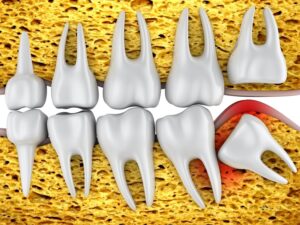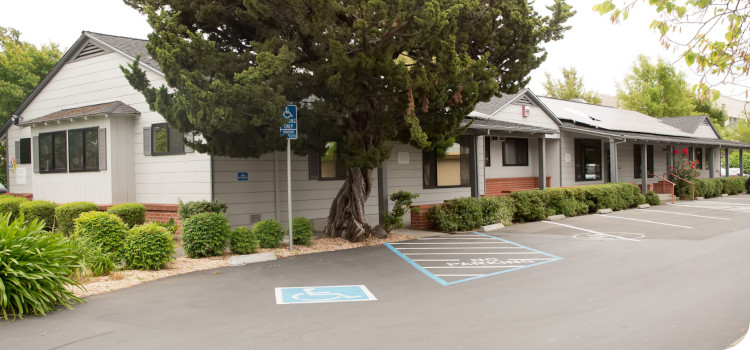 Most common oral health problems are things that can often be prevented with the right level of preventive dental care. For instance, conditions such as tooth decay and gum disease can often be avoided with good dental hygiene and regular preventive dental visits. That’s because they develop as a result of excessive oral bacteria buildup, which is a condition that you have substantial control over. However, the problem with wisdom teeth is that you have no control over their growth and development, and when they become impacted, you’ll have to deal with them to prevent more extensive harm to your oral health.
Most common oral health problems are things that can often be prevented with the right level of preventive dental care. For instance, conditions such as tooth decay and gum disease can often be avoided with good dental hygiene and regular preventive dental visits. That’s because they develop as a result of excessive oral bacteria buildup, which is a condition that you have substantial control over. However, the problem with wisdom teeth is that you have no control over their growth and development, and when they become impacted, you’ll have to deal with them to prevent more extensive harm to your oral health.
If you do develop a third set of molars
Wisdom teeth is the common name people often use to refer to their third set of permanent molars. These tend to develop around the ages of 18-25 years old, which used to be referred to as the Age of Wisdom. However, third molars were more of a necessity for our ancestors, who had to process a rougher diet of raw foods and needed the extra chewing power. As our diets have changed over the ages, so have our dental ridges, which have become smaller. For some people who still develop third molars, this can lead to a crowding problem as their wisdom teeth attempt to develop. If there isn’t enough space, the molars won’t be able to erupt properly, and the resulting problems can become increasingly more severe until they’re extracted.
If your third molars can’t erupt properly
If your wisdom teeth have problems developing and erupting, then you may not realize it until they start to cause damage and discomfort to the area at the ends of your dental ridges. Their impaction can cause your wisdom teeth to force themselves against your second molars, leading to increasingly more intense discomfort and around the teeth. This can also cause damage to the nearest teeth, force your other teeth out of alignment, and cause a number of other problems that can have long-lasting consequences for your smile.
Dealing with a wisdom tooth problem
When wisdom teeth develop and start to cause problems, the most common and effective solution is often to surgically remove the molars as soon as possible. Surgery may be required due to the impacted position of the molars, which can make it impossible to remove their entire structures from your dental ridge through traditional tooth extraction. However, because we don’t typically need our third molars for our bites to function properly, you won’t have to replace your extracted wisdom teeth once they’ve been removed.
Learn how to avoid wisdom tooth problems
Wisdom teeth, or third molars, can often become a problem if they can’t erupt properly. To learn more about how to deal with a wisdom tooth problem, or to schedule a consultation, call Santa Rosa Oral Surgery in Santa Rosa, CA, today at 707-545-4625.

